VW marks 75 years of triumph and turmoil in the US
Prepare for a plague of Beetles. Microbuses, too.
Volkswagen, the German brand that rode the success of a single modest car to become a global giant, is celebrating 75 years of sales in the United States. From the original VW Bug to Microbus camper vans, Grateful Dead concerts, dizzying highs and devastating lows, America has been vital to VW. The brand is celebrating its past and promoting its future with everything from special events to a Super Bowl commercial and a pair of new EVs.
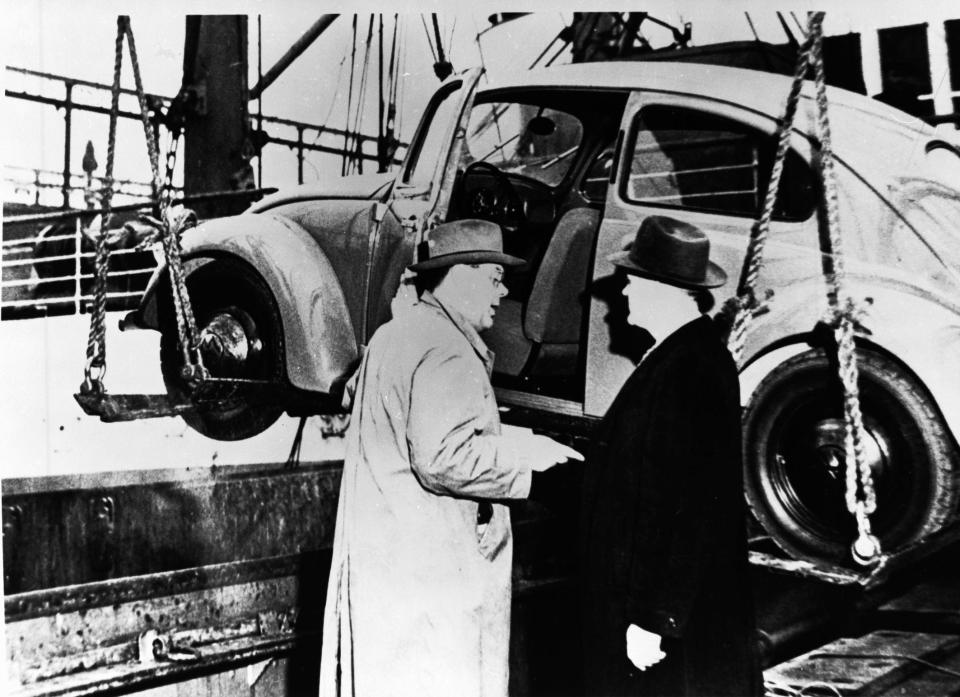
The first pair of Type 1 Beetles to reach the U.S. were hoisted off the Holland America Westerdam, a freighter out of Rotterdam, in New York, on Jan. 17, 1949. VW’s factories in Wolfsburg, Germany — still corporate HQ today — took a pounding in World War II. Repaired under the occupying British Army, resuming production of civilian vehicles was a postwar priority to get the German economy back on its feet.
“Over the past 75 years, Volkswagen has grown from a pair of Beetles into part of America’s cultural fabric,” VW of America Senior Vice President Rachael Zaluzec said. “As we celebrate 75 years, we will celebrate the real people and real-life moments that have made Volkswagen.”
Initially, Americans barely noticed the cars, which had already earned the nickname Kafer — “Beetle” in Germany. Dutch businessman Ben Pon had a hard time making an impression as U.S. automakers flooded the market with the first new vehicles they’d developed since ending production of military goods.
“The Volkswagen Beetle was very much the spiritual successor to the Model T, offering inexpensive, reliable transportation — and not much more,” said Matt Anderson, transportation curator at the Henry Ford Museum in Dearborn. “‘Iconic’ is an overused word, but it applies to the VW Beetle which, for decades, symbolized a non-Detroit mindset to buyers and builders alike.”
VW said 'think small' when American cars were big
Volkswagen established an American subsidiary to organize its dealers, advertising and parts availability in 1955. In 1959, as American cars entered a decade of growth from modest 1950s sedans to relative giants, VW launched a trend-setting advertising campaign that would last for decades with a 1959 ad, from the agency Doyle Dane Bernbach, that declared “Think small,” touting the Beetle’s size, efficiency and ease of maintenance.
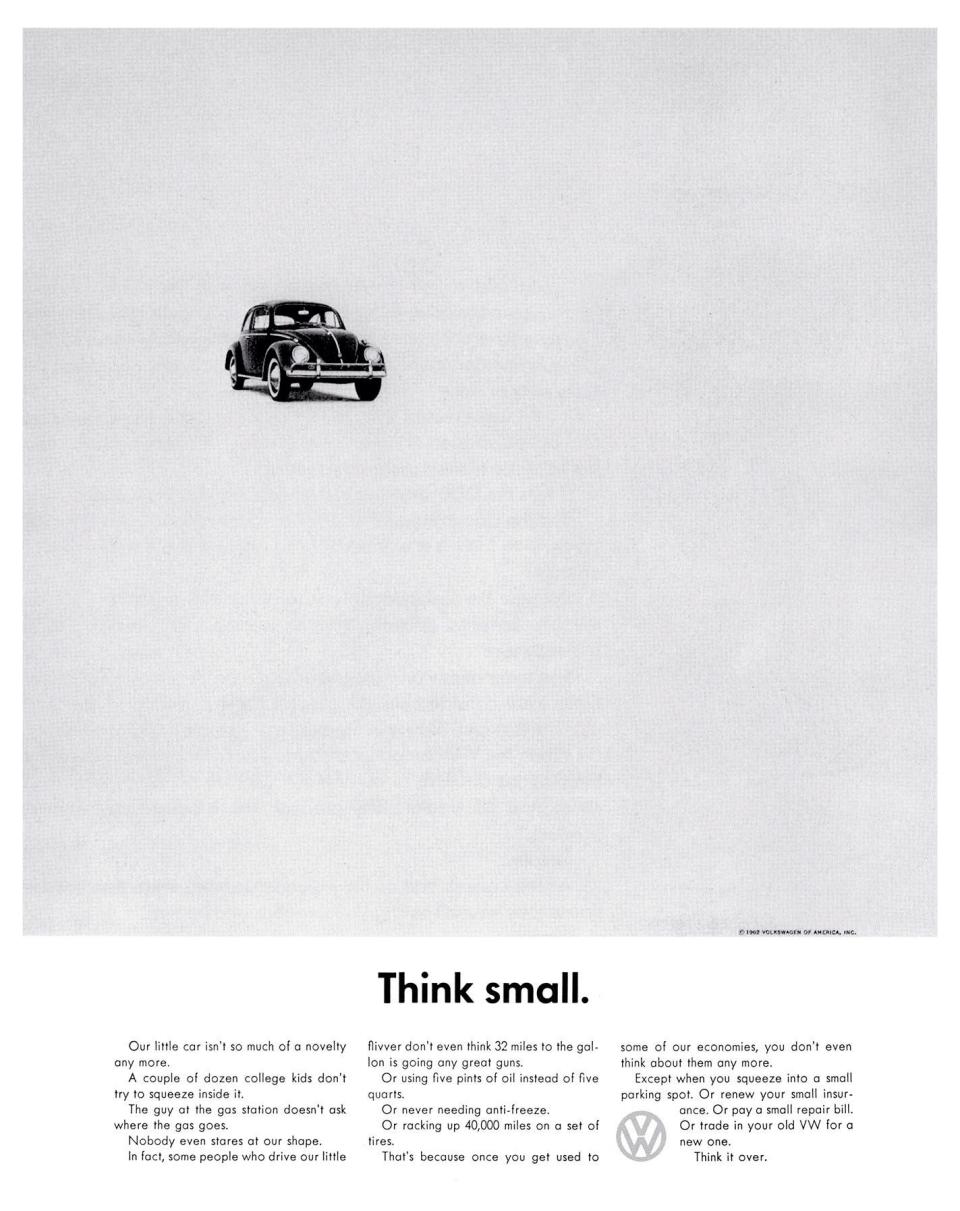
The brand added models, most notably the Bus — a van that shared its rear-engine layout with the Beetle. The two vehicles became synonymous with affordability, youth and nonconformity. They were joined by a small wagon and the beautiful Karmann Ghia coupe and convertible, designed by the famous Ghia studio in Italy and built by German coachbuilder Karmann. The lineup also included the practical Squareback small wagon and Fastback, a hatchback.
By the end of the 1960s, VW was the leading import brand in the U.S. Second place was so distant that whoever was in it didn’t matter.
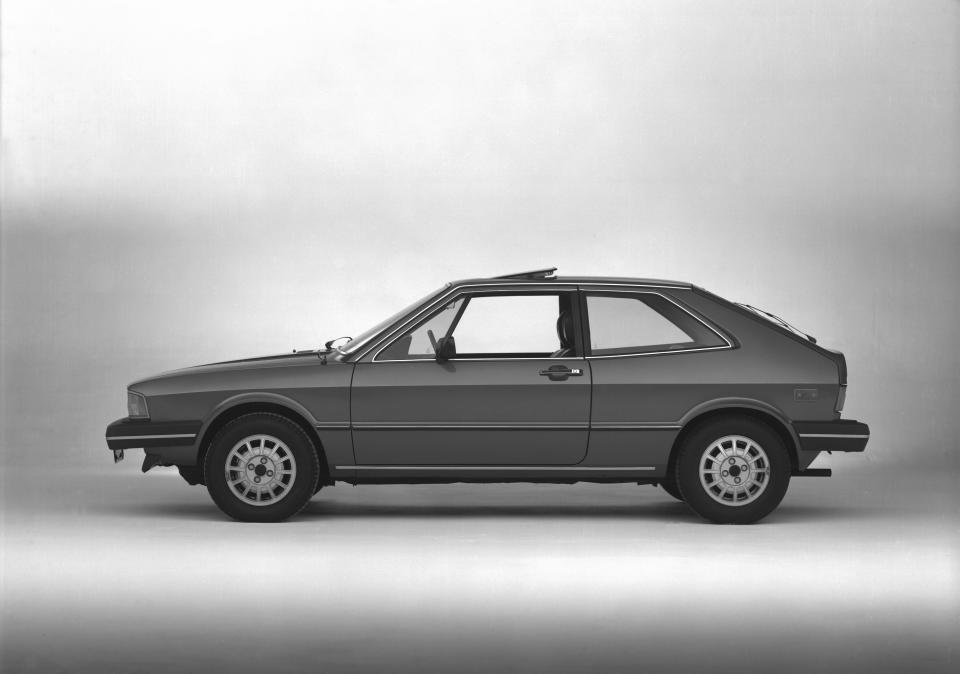
Building cars in the States
By the 1970s, VW’s popularity and sales convinced the bosses in Wolfsburg to build cars in the U.S. The company bought an unfinished plant in Westmoreland, Pennsylvania, from Chrysler, which was in dire financial straits.
VW Manufacturing of America opened its doors in July 1978, years before the first Japanese assembly plant opened.
Rather than the beloved Beetle or Bus, the factory’s first product was the Rabbit, a functional and brilliantly engineered hatchback.
VW continued to import cars throughout the ‘70s and ‘80s, including its first sports car, the Scirocco, and the Dasher and Quantum, renamed versions of the European Passat sedan and wagon.
Westmoreland added production of the Rabbit GTi sport compact and a compact pickup based on the Rabbit.
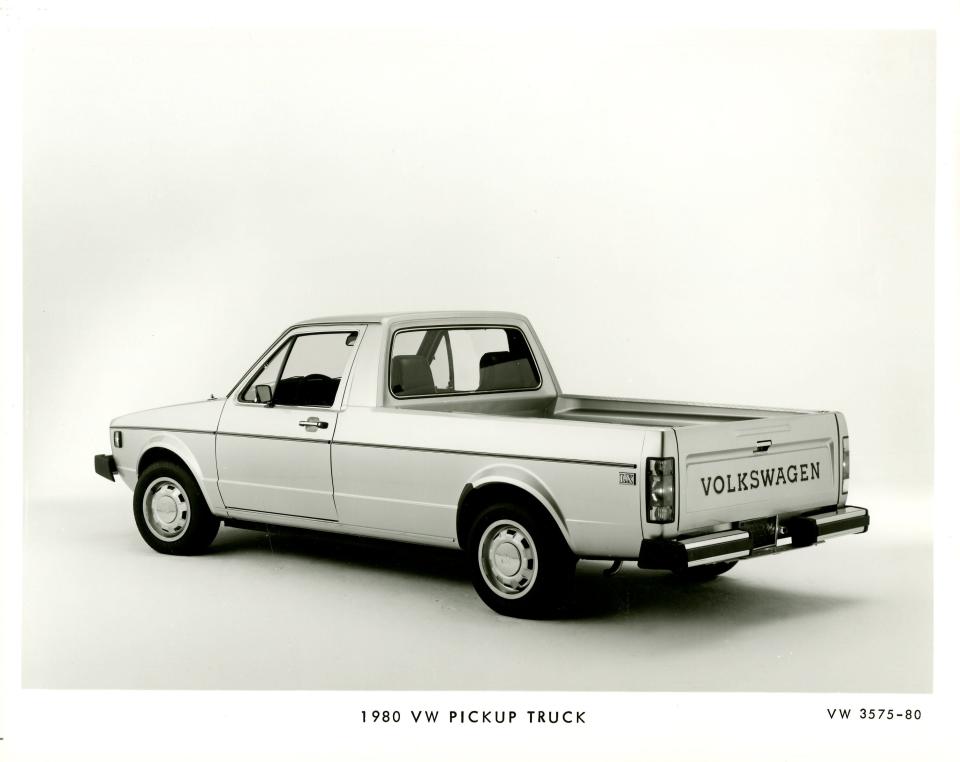
Despite soaring fuel prices due to energy crises, the plant struggled as American buyers struggled with VW’s transformation from quirky bargains to more sophisticated vehicles.
Westmoreland built 1.1 million vehicles before closing in 1988.
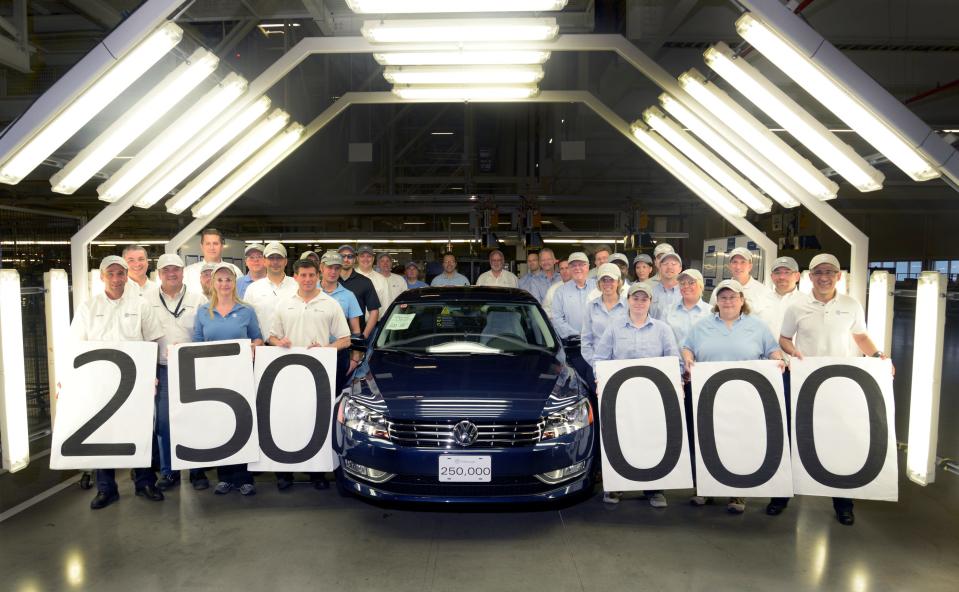
Key Volkswagen dates in the U.S.
Jan. 17, 1949: First Beetles arrive in New York City.
July 4, 1950: Agreement is made to sell VWs with Max Hoffman, renowned vehicle importer.
July 17, 1950: First press presentation of the Beetle.
Sept. 11, 1952: VW Canada is founded.
Oct. 27, 1955: Volkswagen of America is founded.
Aug. 1, 1959: First DDB ad runs in The New Yorker.
1960: VW becomes largest import brand in the U.S.
April 1969: Release of movie "The Love Bug," featuring the Beetle.
February 1975: First Rabbit (Golf) sales in the U.S.
July 6, 1976: VW Manufacturing of America is established in Westmoreland, Pennsylvania.
April 10, 1978: First U.S.-made Golf is produced.
1980: First U.S.-made Jetta is produced.
July 1988: Westmoreland assembly plant is closed.
1991: North American Region established.
March 1998: New Beetle introduced.
2005: The film "Herbie: Fully Loaded" is released.
2008: Ground is broken for Chattanooga, Tennessee, plant.
May 2011: U.S. made Passat goes on sale.
2017: Atlas midsize SUV goes on sale.
January 2017: VW pleads guilty to rigging emissions of diesel engines.
2022: ID.4 electric vehicle production begins in Chattanooga.
March 2023: Revival of Scout brand for U.S.-made electric pickups and SUVs is announced.
Source: Free Press research and Volkswagen
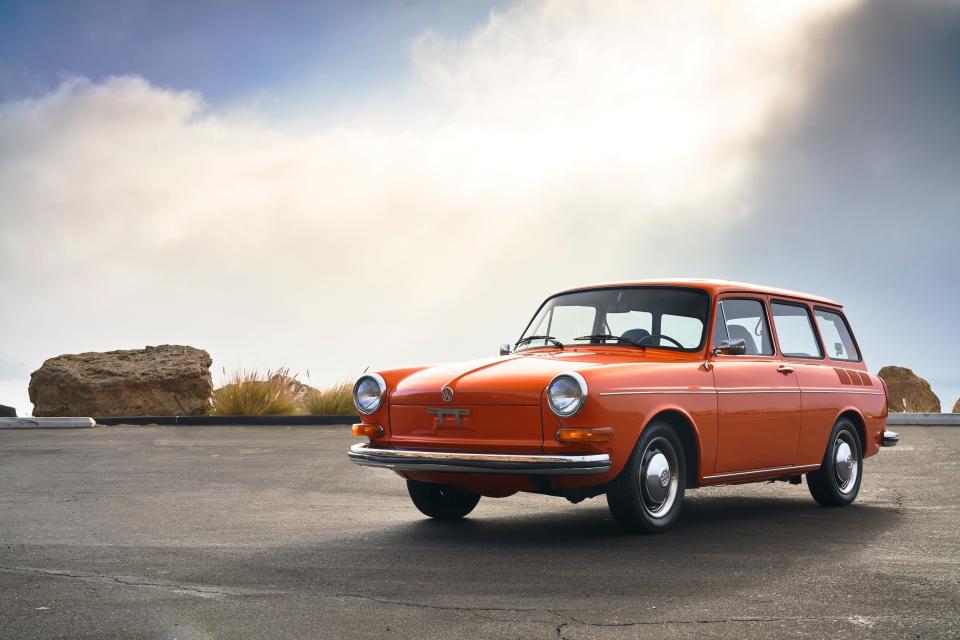
The Beetle triumphs, again
VW sales languished in much of the ‘80s and ‘90s, sometimes dipping below those of its more expensive corporate stablemate, Audi. Executives in Germany considered abandoning U.S. sales, but remained determined to succeed in the market that had once been their pride and joy.
The Beetle came to the rescue again, first as a retro-concept car that inspired tears in the audience when it debuted as the Concept 1 at the 1994 North American International Auto Show in Detroit.
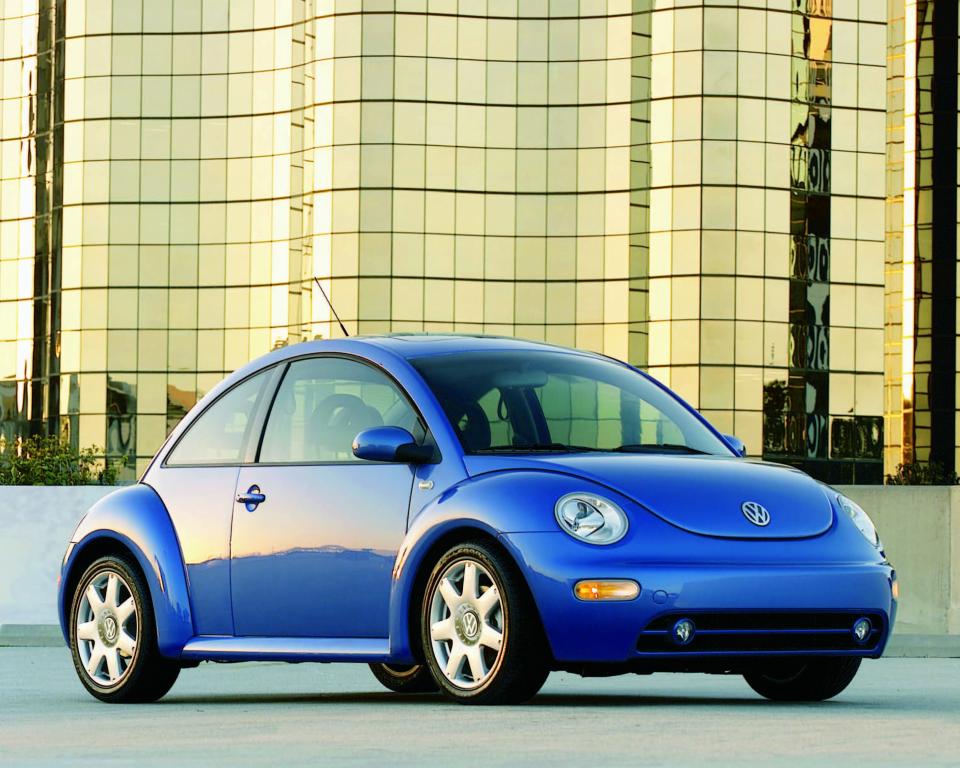
Christened the New Beetle and rushed into production, the car was a sensation when sales began in 1998. It remained a mainstay of VW’s lineup through 2019.
From diesel disaster to an electric microbus
In addition to the New Beetle, Volkswagen sold a wide range of cars in the 2000s. It also joined the SUV craze with the compact Tiguan, which hit U.S. roads in 2008.
At the same time, VW broke ground on a new assembly plant in Chattanooga, Tennessee. The $4.3 billion plant began production with the Passat midsize sedan in 2011, adding the Atlas midsize SUV.
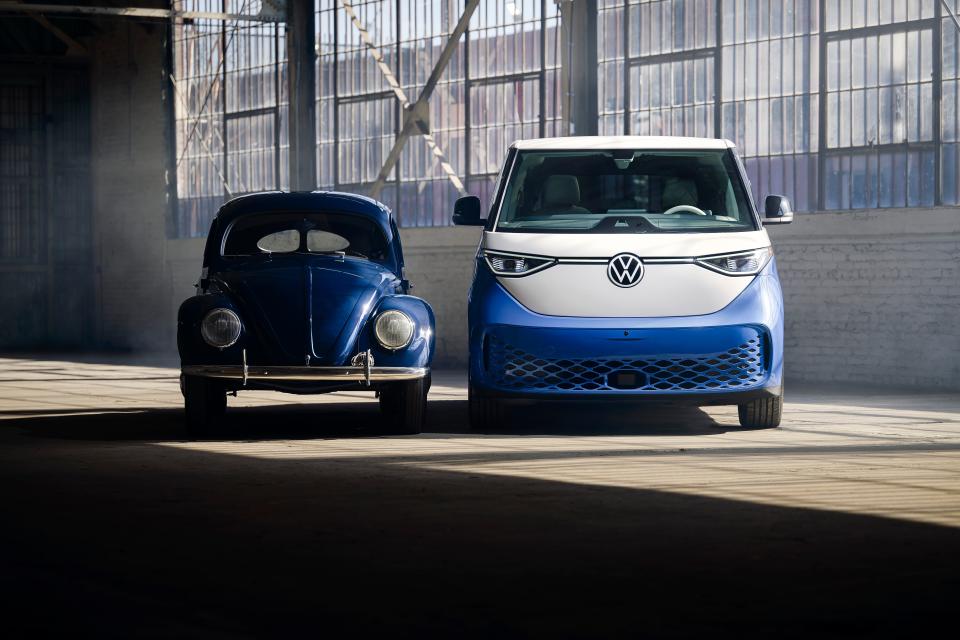
At the same time, disaster struck. The powerful and efficient diesel engines that had helped VW build a reputation for combining performance with efficiency and clean operation were found to have cheated on emissions tests. VW eventually paid billions in fines, repurchased hundreds of thousands, and created the first nationwide electric vehicle charging network to make amends.
Chattanooga became a center for EV and battery production. Its first EV, the ID.4 midsize SUV, went on sale in 2022. An electric sedan, the ID.7, will join it in production later this year.
Also this year, VW will launch U.S. sales of the ID. Buzz, an electric minivan designed to recall the beloved Bus.
The automaker has also revived the Scout brand name for a line of U.S.-built electric SUVs and pickups. Sales should begin in 2026, and rumor has it the automaker will reveal a prototype this year.
Contact Mark Phelan: 313-222-6731 or mmphelan@freepress.com. Follow him on Twitter @mark_phelan. Read more on autos and sign up for our autos newsletter. Become a subscriber
This article originally appeared on Detroit Free Press: Volkswagen marks 75 years of triumph and turmoil in the US
